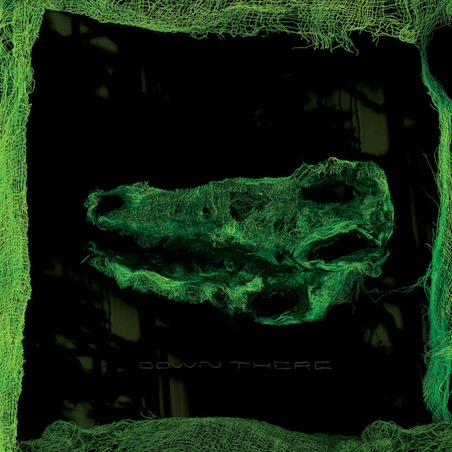Reviews
Avey Tare Releases Debut Album, Comes Forth From Swamp On the Back of a Croc

Down There
Avey Tare
Release Date: Oct 25, 10
- 1
- 2
- 3
- 4
- 5
- 6
- 7
- 8
- 9
- 10
Avey Tare’s debut solo album, Down There, came out October 25th. Besides his recent Animal Collective output, Avey’s last non-AC effort was the fantastically weird (whichever direction you listen to it) Pullhare Rubeye, which Avey made in collaboration with his now ex-wife, Kria Brekkan, who herself used to belong to the band Mum. Down There thrives on its swamp influenced atmosphere, which Avey has described as symbolizing the way he’s felt the last few years, which he admits has been “topsy-turvy”. Not quite what you’d expect after all of Animal Collective’s ever-growing success. However, these past two years had Tare break up with his wife, lose his grandmother, and find out his sister was diagnosed with cancer. These three major experiences, as well as being unable to avoid continuing to grow and look back on what you’ve done with question, led Tare to feel much like having his feet deep in a swamp, unable to move in any direction, water just barely low enough for him to breathe. Down There represents an attempt to come to terms with all of this, and finally make his way out of his own personal swamp. Soundwise the album relies heavily on the drum machine, synthesizers, and oscillators, similar to the most recent AC album, yet this album is not as accessible as the current AC material, yet in many ways it is this dark drift from AC’s lighter sound that makes this album so important in the Animal Collective canon.
The opening track, “Laughing Hieroglyphic,” begins with some strangely oscillating sound waves, and a deep non-human sounding voice that gives off a heavy b-movie vibe, a layer of the atmosphere that will hang around for most of the album. Musically relatively low-key, Tare’s vocals are delivered with loads of pent-up soul right on top of the music. “3 Umbrellas,” a song about the past and present members of Animal Collective, is the album’s most catchy tune. The song pulses with marimba-like effervescence and a nostalgic joy in the vocals that contrasts nicely with the album’s darker tracks.
“Oliver Twist” is the album’s most upbeat track, containing the most consistent beats on the album, similar to those big beats found on Meriwether. The synths float lazily around, never quite returning to where they had been before, making Tare seem as though unable to find any stability. “Glass Bottom Boat” has a man, presumably Tare, asking another if he knows how to get to the cemetery, with the response “Sure, I can get you there. Just step into my boat here.” The track, an atmosphere builder if there ever was one, finds Tare continuing his journey into darkness, trying to find his way into the heart of it all. The following two tracks, “Ghost of Books” and “Cemeteries,” are the album’s darkest tracks. “Ghost of Books,” about Tare’s break-up, suggests the idea of a love that slowly becomes a ghost of what once was. Cemeteries is another atmosphere drenched, sample heavy track, which feels as though being led by a hand that isn’t there through a thick fog covered cemetery.
“Heather in the hospital” is about Tare’s sister in the hospital being treated for cancer. However, the song doesn’t contain much in the way of personal narrative, but instead has Tare singing of hospital imagery, allowing the listeners to bring their own hospital experiences into the listen. The album concludes with the more upbeat and optimistic “Lucky 1.” Listening to the track after the so-called “weird hell” of the earlier tracks leads one to believe that Tare accomplished what he set out to do with this album. He was able to clear away some of his own emotional fog and prepare himself to move forward.